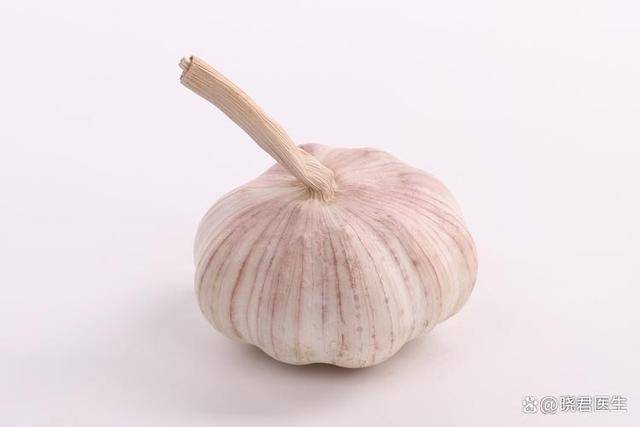Hypertension, a common health issue in modern society, has attracted widespread attention. There are various claims circulated on the internet about dietary taboos for hypertension, among which the belief that “hypertensive individuals should not consume garlic” is particularly noteworthy. However, doctors admit that garlic is not an absolute taboo for hypertension patients; the real concern lies with four other types of vegetarian foods.
Firstly, let’s clarify the misconception about garlic. Garlic, as a common seasoning, is loved for its unique pungent taste and rich nutritional value. Indeed, garlic contains certain sulfides that may have an impact on blood pressure to some extent.
However, this impact is not absolute, and other components in garlic such as allicin have positive effects on cardiovascular health. Therefore, moderate consumption of garlic is permissible for hypertension patients; the key lies in controlling the intake and avoiding excessive consumption.
So, what are the four types of vegetarian foods that hypertension patients truly need to be wary of?
The first is high-salt foods. Salt is a “silent killer” for hypertension; excessive salt intake leads to an increase in sodium ions in the body, resulting in water and sodium retention, leading to elevated blood pressure. Therefore, hypertension patients should avoid consuming pickles, preserved foods, and other high-salt foods and keep daily salt intake below 6 grams.
The second is high-fat foods. Animal fats, fatty meats, and other high-fat foods contain abundant saturated fatty acids that are difficult to digest and absorb in the body, leading to their deposition on blood vessel walls, causing vascular constriction and elevated blood pressure. Thus, hypertension patients should opt for a low-fat diet and consume plant oils and fish rich in unsaturated fatty acids.
The third is stimulant foods. Spicy foods like chili peppers, mustard, etc., stimulate the sympathetic nervous system, accelerate heart rate, and cause blood vessels to constrict, leading to increased blood pressure. Hypertension patients should avoid consuming these stimulant foods to prevent worsening of their condition.
The fourth is foods containing caffeine. Beverages containing caffeine such as coffee and strong tea stimulate the central nervous system, causing blood vessel constriction and elevated blood pressure. Hypertension patients should try to avoid consuming these beverages to prevent adverse effects on blood pressure.
In addition to avoiding the aforementioned four types of vegetarian foods, hypertension patients should maintain good lifestyle habits. These include ensuring an adequate amount of sleep, avoiding excessive fatigue, engaging in appropriate physical exercise to enhance physical fitness, maintaining a positive mindset, and avoiding emotional fluctuations. These measures contribute to stabilizing blood pressure and maintaining overall health.
In conclusion, for hypertension patients, dietary regulation is one of the key means of controlling blood pressure. While garlic is not an absolute taboo for hypertension patients, cautious consumption is still advised. The real concerns are high salt, high fat, stimulant, and caffeine-containing vegetarian foods.
Through scientifically balanced dietary choices and good lifestyle habits, hypertension patients can effectively control their blood pressure and maintain their health. Furthermore, individuals should raise self-care awareness, undergo regular check-ups, and promptly identify and treat chronic diseases like hypertension to safeguard their health.


